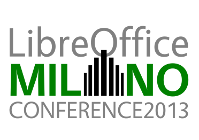Italy’s Emilia-Romagna region to save €2 mn. with OpenOffice
 The administration of the Italy’s Emilia-Romagna region will switch to the open source OpenOffice productivity suite, Joinup reports. It thus hopes to save some €2 mn. euro on the licences that it would have spent for updating the ubiquitous MS Office suite. To prepare the migration, a three-month pilot involving 300 workstations has started at the region’s Directorate-General for Agriculture; all other regional departments will switch over to OpenOffice by the end of 2014. The region employs some 3,545 office staff.
The administration of the Italy’s Emilia-Romagna region will switch to the open source OpenOffice productivity suite, Joinup reports. It thus hopes to save some €2 mn. euro on the licences that it would have spent for updating the ubiquitous MS Office suite. To prepare the migration, a three-month pilot involving 300 workstations has started at the region’s Directorate-General for Agriculture; all other regional departments will switch over to OpenOffice by the end of 2014. The region employs some 3,545 office staff.

The region is currently using a ten year-old version of MS Office. Instead of spending €2 mn. to upgrade 3,200 proprietary licences that are due to expire next year, the province decided to switch to OpenOffice which “offers basically the same functionality”.
The region has set aside a budget of €220,000 for the switch to OpenOffice; this budget includes a staff training element.


 At the end of last week,
At the end of last week,  MIMO, the French inter-ministerial group devoted to the promotion of open source within government, has become a member of the Advisory Board of
MIMO, the French inter-ministerial group devoted to the promotion of open source within government, has become a member of the Advisory Board of